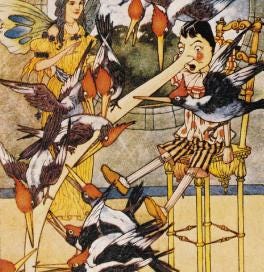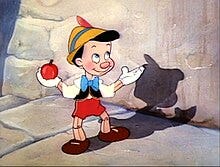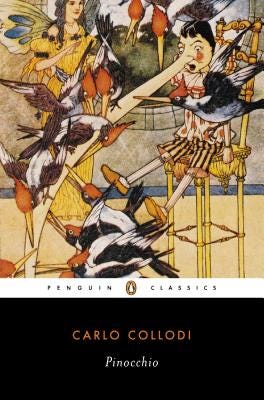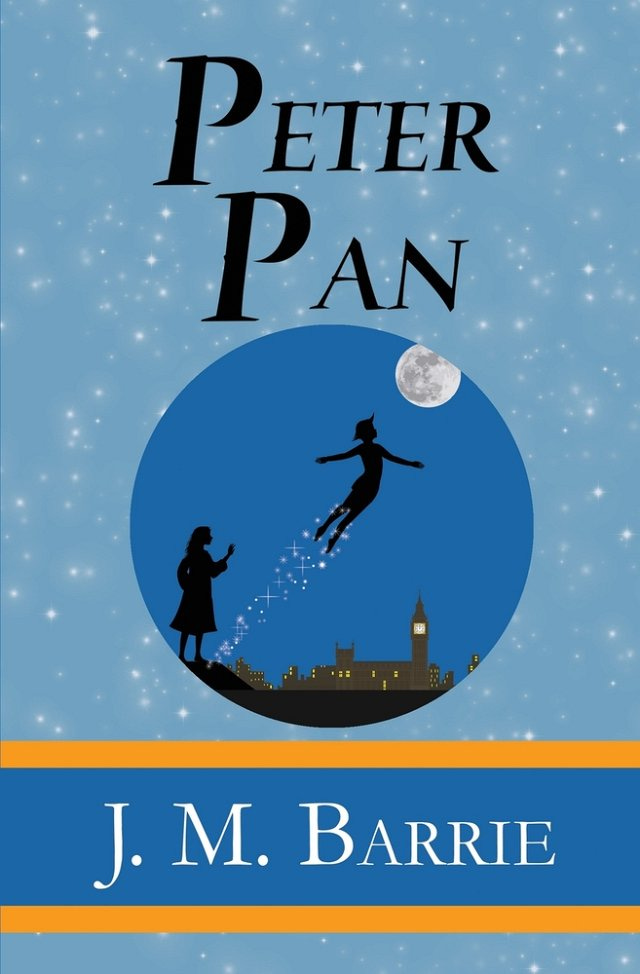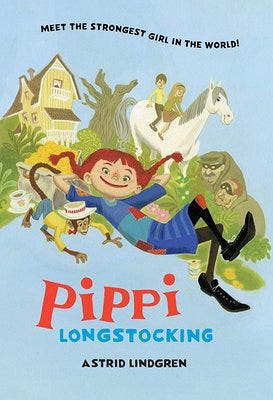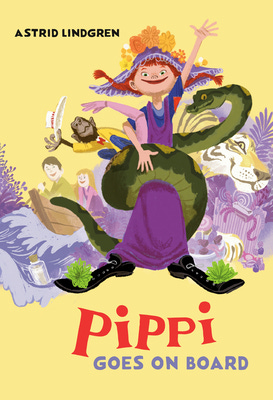Pinocchio
Carlo Lorenzini (penname Carlo Collodi) [24 November 1826 - 26 October 1890]
Pinocchio is a story many people are familiar with from the 1940 Disney animated classic. Some perhaps are familiar with the newest film version from 2022 with Tom Hanks. After reading the book, though, it was hard to watch the trailer for the 2022 film, or even the classic version, as even the classic loses much of the meaning that comes across in the book. The book, for better or worse, is a cross between opera buffa and a traditional fable.
I was struck when reading this how much of the book must have been influenced by the culture of Italy at the time it was written. Though I have only read about Collodi’s (pen-name) role in translating fables, which definitively played a role in influencing the tale of Pinocchio, I also see so much of the opera world in his descriptions of both characters and their actions. I think some knowledge of opera would be helpful in reading Pinocchio, though certainly not necessary.1
The Adventures of Pinocchio by Carlo Collodi was first published as a series in a children’s magazine and subsequently published as a book in 1883. It is not surprising that Pinocchio was chosen as a story by animator Walt Disney. It lends itself well to the fantastical and magical world of animation. The story abounds in talking animals, magical transformations, and one escapade after another. The story has thematic parallels to Peter Pan2 (Link here) and Pippi Longstocking3 (Link here or here), both larger-than-life characters that don’t want to grow up, though each in their own way.
The book does have some darker parts, though Pinocchio prevails throughout the story, in no small part due to a fairy who several times over saves him from worse fates. I do think this is a book better read to a child than a child reading by themselves as it may be read as both moral seriousness and extraordinary playfulness. The story opens doors to interactive questions rather than simple passive listening and therein lies its magic.
Ultimately, though Pinocchio demonstrates what happens when you do not follow the sound advice of those who loved him, instead trying to take shortcuts to easy solutions. He does go through both a figurative and literal character transformation shaped by an inherent goodness in his heart and disposition. We can love and accept him as a beautiful character despite his naughtiness and perhaps because of it he becomes all the more human..in every way.
Springboards
Italian cuisine
Puppetry
Puppet Theatre
Fairy House
Circus
Hippocrates (c. 460-377 B.C.)
Louis Pasteur (1822-95)
Attila the Hun (406-453)
Two of the most famous Italian opera composers contemporary to Lorenzini are Gioachino Rossini [29 February 1792 - 13 November 1868] and Giuseppi Verdi [10 October 1813 - 27 January 1901].

